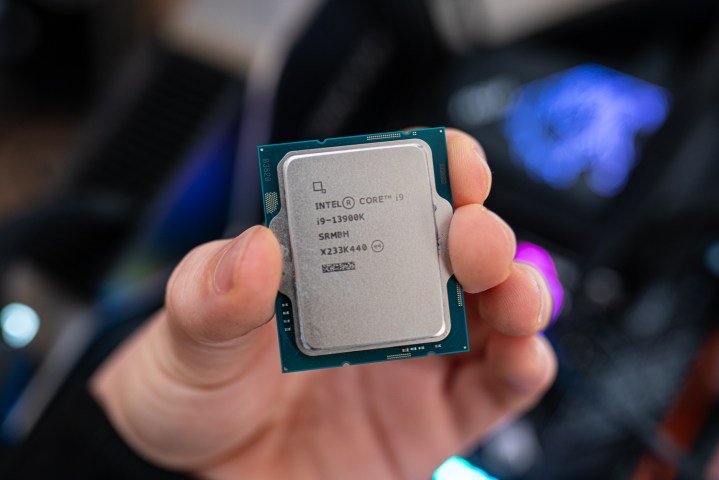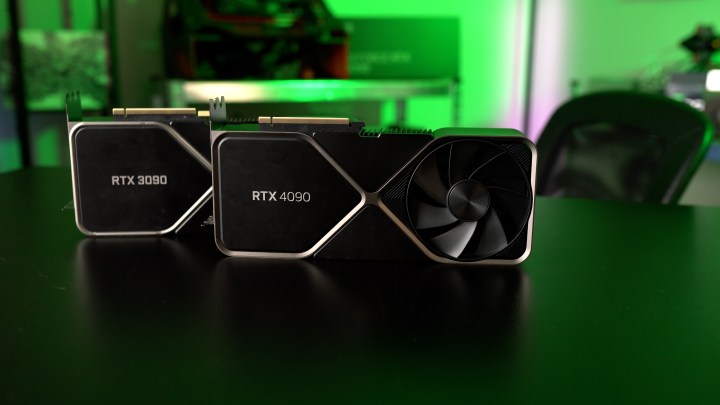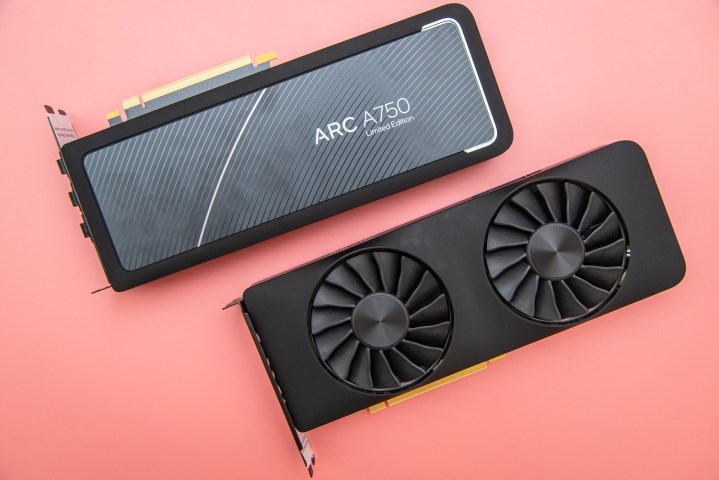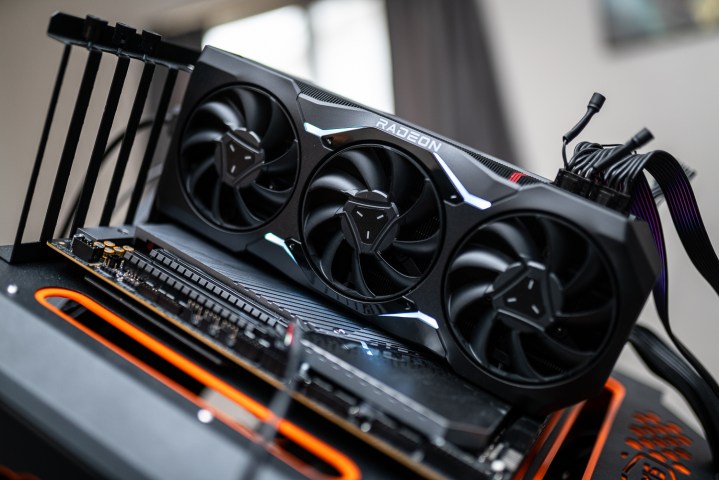The rivalry between AMD, Nvidia, and Intel is exciting to watch at times. Which tech giant makes the best processors? What about graphics cards? This discourse is a bit of fun any PC enthusiast can have online, but too often, it devolves into something that can persuade buyers into bad purchases and push loyal fans into branded camps.
A little bit of competition between all three chipmakers is a good thing, but frankly, the amount of misinformation that stems from it makes life harder for most users. Here’s why I’m sick of the never-ending online battle of AMD versus Intel versus Nvidia, and why you should be, too.
Misinformation and bias

AMD, Intel, Nvidia — these are the choices every PC user faces when working on a new build, buying a desktop, or a laptop. That wasn’t always the case, however, and the constant push and pull between the manufacturers ripples through the market and the people who shop for their products.
Not too long ago, when AMD’s presence in the market was less significant, there wasn’t much of a rivalry at all. If you wanted a good PC, you bought Nvidia and Intel; if you wanted to save money, you may have given AMD a go. Now, with AMD once again producing solid hardware and Intel making discrete GPUs, the lines are more blurred than ever before, and the marketing war is ramping up. As a result, the people who support either AMD, Intel, or Nvidia often feel more inclined to speak up, and that can create anything from a lively debate to a toxic environment in various online spaces.
Brand loyalty often stirs up a lot of wrong ideas about what’s good and what isn’t, and that’s not great for those who turn to online communities, like Reddit and Facebook, for help. The three manufacturers play into it as much as possible, though, willingly pitting their products against each other even when the comparisons don’t make a lot of sense.

AMD comes to mind, with its freshly announced RX 7800 XT and RX 7700 XT graphics cards. To highlight their performance, AMD compared them to cards from two generations ago, the RTX 2070 Super and the RX 5700 XT, among others. Nvidia does it, too, highlighting how big of a jump its new RTX 4060 is over the GTX 1060 and RTX 2060. A PC enthusiast will know that these comparisons can’t possibly be fair, but they create a narrative that follows the product around in online communities.
Often, you see these narratives continue long after the review dust has settled. The story goes that Intel’s Arc A770 and A750 don’t perform well in older games, for instance, despite the fact that Intel has fixed that issue through driver updates. And when prospective buyers turn to PC veterans for buying advice, they can be pulled in a half a dozen different directions.
These communities are needed and necessary, and while the vast majority of users are helpful, there’s way too much bias — ranging from a casual dislike to pure toxicity — to make it possible for anyone to trust them blindly.
Trust no one

Don’t get me wrong — most opinions are biased in one way or another, and Reddit is not to blame here. I’m just strongly opposed to using that bias and fueling the AMD versus Nvidia versus Intel discourse at the expense of people who aren’t experts and who just want to spend their money on a decent computer. Unfortunately, they are often the ones to pay the price for this long-standing rivalry.
I spend quite a bit of time on various PC-building forums, reading and answering similar questions, and let me tell you — it’s dangerous out there. Just in the past few weeks, I’ve seen an AMD fan advise someone that the RX 7900 XTX is just as fast as the RTX 4090, which is just not true. Our own benchmarks show that it’s about 32% slower than the RTX 4090 with ray tracing enabled, and around 28% slower if ray tracing is turned off. The actual performance of the GPU is closer to Nvidia’s RTX 4080, and both those cards are miles behind the RTX 4090.
Similarly, in a thread where a person tried to decide between the RTX 4080 and the RX 7900 XTX, one of the group’s moderators said that while the RX 7900 XTX is fast, they would never spend that much money on an AMD graphics card. You could make an argument that the RTX 4080 is a better buy, but situations like this largely come down to brand loyalty than concrete data.
The bias against AMD is strong, but it’s a two-way street, and those who favor Nvidia are often criticized by those who prefer AMD for buying into Nvidia’s outrageous pricing. In those scenarios, any and all benchmark results are often skewed to make AMD’s cards appear better than they really are in order to further undermine Nvidia’s value.

I’ve seen the term “Ngreedia” floating around, and personally, I use it as a cue that there’s no need to keep reading — the author is clearly biased. The same goes for the claims that AMD’s drivers are still bad these days. While AMD certainly had its driver-related troubles, it’s mostly on point now, or at least it’s better to the point that the argument has no substance. However, reading things like this is often enough for a casual buyer to deem AMD not worth buying. It’s an echo chamber that never seems to end.
You’d think that things would be more balanced in the CPU sector, and for the most part, they are. I see AMD often being recommended due to the longevity of the AM5 platform versus Intel’s Raptor Lake, and the Ryzen 7 7800X3D is rightfully labeled as the fastest gaming CPU. But even then, as I looked through some forums while writing this article, I found arguments that AMD pays streamers and reviewers in exchange for skewed benchmark results, and Intel is, in fact, better.
That’s before we get to platforms like UserBenchmark, which dominates search results with claims about “AMD’s army of Neanderthal social media accounts,” and consistently references paid reviews to prop up AMD competitors. There’s no problem if an Nvidia or Intel product beats one from AMD — they often do — but this goes to show the extent in which misinformation about PC components spreads online, especially to buyers who aren’t entrenched in these spaces.
For AMD, Intel, and Nvidia, this kind of behavior is still free marketing. Even if one manufacturer gets a bad rep, its fans swoop in to defend it. At the end of the day, at least its products are being talked about. But for the people who are after valuable information, this can get tiring — and it’s not like the rivalry is anything new at this point. It dates back to many years ago.
Who doesn’t love an underdog?

Things might have been different if not for AMD’s constant underdog status.
There’s no denying that it’s been a rocky climb for AMD. In the early 2000s, AMD was producing chips that were impressive when compared to their Intel alternatives — for instance, the Athlon 64 comes to mind. AMD also bought ATI in 2006, breaking into the GPU market in a big way, and started out strong with GPUs that some people liked to dub “Nvidia killers.” Outside of straight-up consumer PCs, AMD developed a presence in the server market, especially with the Opteron series, but also in laptops with its AMD Fusion APUs.
However, AMD’s golden era seemed to have faded over time — for a while. As AMD was reportedly staring down bankruptcy, Nvidia improved its GPUs by leaps and bounds, reclaiming its spot in the hearts of gamers. From Maxwell, to Pascal, to Turing, and finally Ampere and Ada, Nvidia grew into its own architecture and evolved its software stack. Fortunately, so did AMD, but some people appear to have missed the memo, continuing that same biased narrative — either in favor of the underdog or the long-standing champion.
 AMD
AMDIs this what fostered the toxic culture that seems to follow all three manufacturers across every generation of products, or would it have happened anyway? It’s hard to say, but I know one thing for sure — the performance of a component, be it a CPU or a GPU, is not something that comes down to opinion. Most of it can be backed up with data and hard facts. And yet, if you check social media, the narrative isn’t fueled by facts as much as a sense of community that pits some people against particular brands.
This wasn’t so prominent just a decade ago. While all three chipmakers had their fans, the interaction was much more limited than it is now. These days, AMD, Intel, and Nvidia each have a subreddit that each brand’s reps read and respond to. They have Discord servers, too. It’s hard to say who coined these nicknames, but they all go along with the way the community calls them Team Red, Blue, and Green. In fact, AMD’s Discord server is called “AMD Red Team.”
The CEOs of AMD and Nvidia also get plenty of attention from their respective fan bases, and the media picks up on it. Be it hate or adoration, it’s pretty rare for a company like this to have followers who care not just about the products, but about the people who sit at the very top. This can lead to some intrusive discoveries and speculation, but ultimately, it keeps people talking about AMD and Nvidia, so it all pays off.
Given the above, it’s worrying how much people are willing to shape their own reality just to convince a stranger not to support Nvidia, Intel, or AMD. I don’t know why I’m surprised, really, because this kind of behavior is common across every topic and hobby on the internet. It’s just a shame to see it influence people’s buying decisions sometimes.
If you’re in the market for a new PC, keep an open mind and don’t give too much weight to what other people say. Their opinion is still just that — an opinion — and facts will always trump opinions when you’re spending hundreds of dollars on new hardware. The best way to make sure that you’re getting the right thing is not to turn to a forum or a website, but to read reviews from reputable sources — and don’t just limit yourself to one or two. Unfortunately, the cult following around PC hardware brands means that straight-up opinions are hard to take at face value.
Editors’ Recommendations
Services Marketplace – Listings, Bookings & Reviews